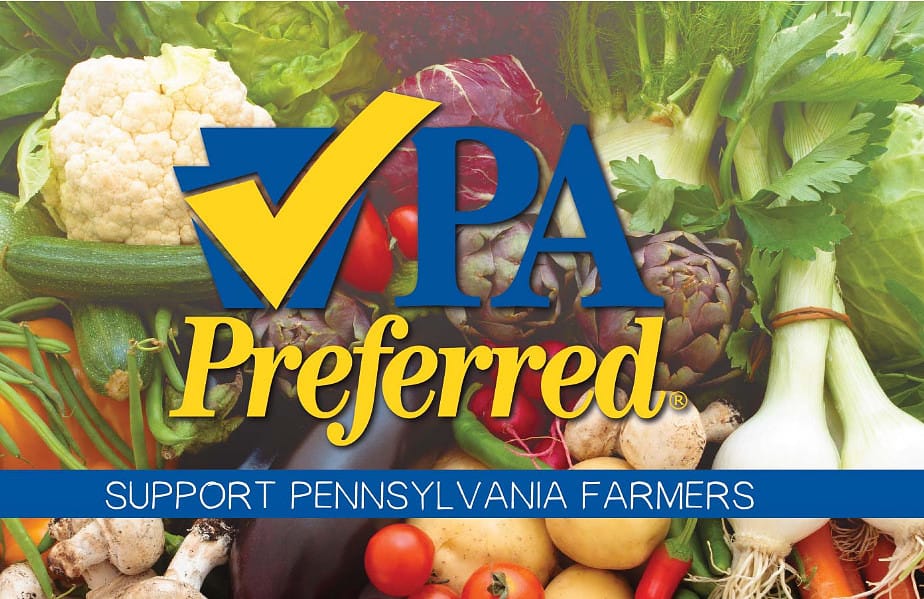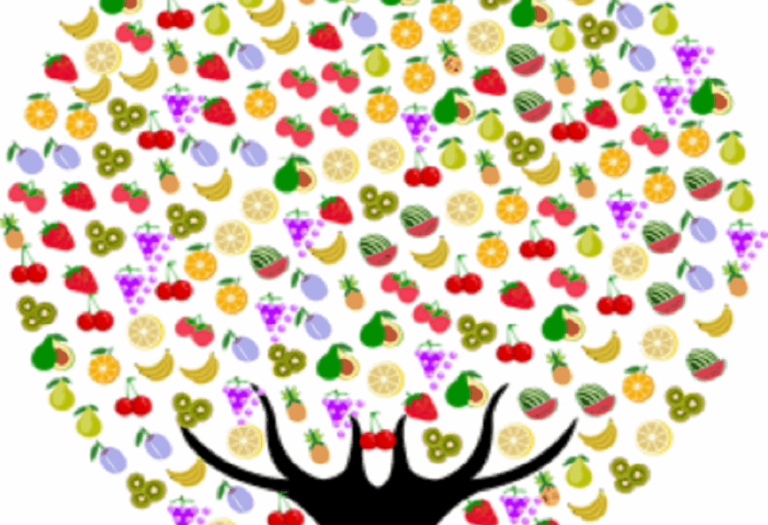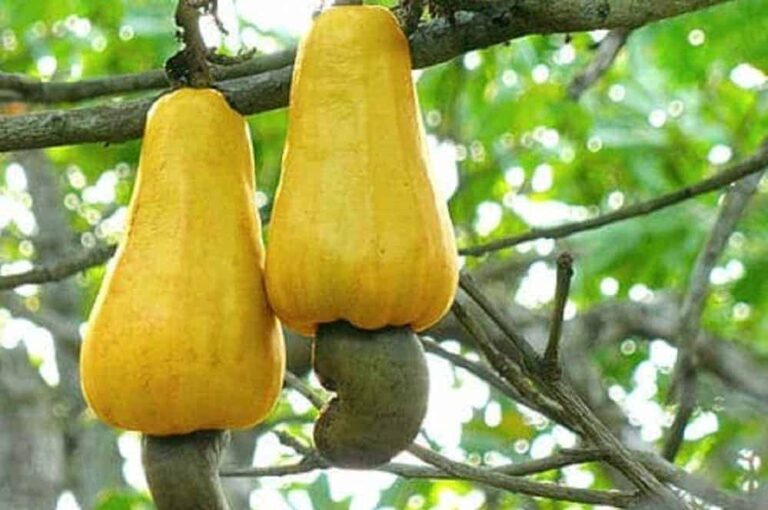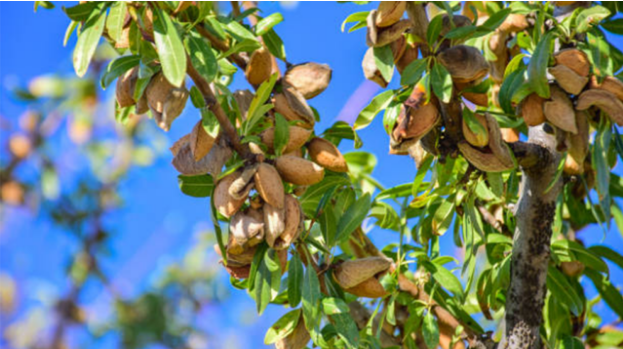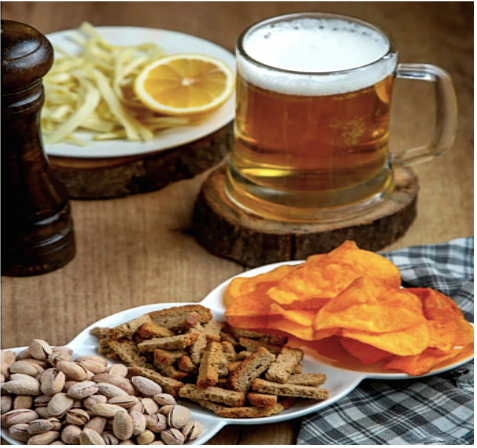Your cart is currently empty!
State-to-State Food Certification and Organic Farm Consumer Programs
Alaska Organic Certification System
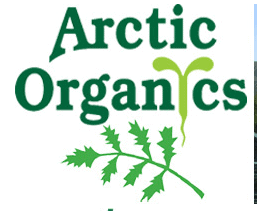
PGS is Participatory Guarantee Systems (PGS), a locally focused quality assurance system discussed in their blog. Producers participate as stakeholders and build on a foundation of trust, networks, and knowledge exchange. Certified Naturally Grown is a Participatory Guarantee System. In recent years, they have gained recognition for their valuable role in small-scale farming in organic systems. PGS provides an important alternative to third-party certification programs
In addition to being more affordable and less reliant on paperwork, PGS distinguishes itself by its approach. Inspections take place by peers. Typically, other farmers in the area. The PGS model is based on transparency, trust, and direct relationships. PGS fosters local networks that strengthen the farming community through mutual support and educational opportunities. IFOAM actively supports the development of PGS with educational materials, a bi-monthly newsletter, the publication of an international PGS directory, and its PGS committee.
An estimated fifty thousand farmers in more than 50 countries participate in this peer-review certification program. In some countries, PGS has gained official government recognition and has entered into organic regulations. Arctic Organics is a great example of the State Food Certification for Organic Food Markets in any state but known for Alaskan products.
New Hampshire Organic Certification Program

https://www.agriculture.nh.gov/divisions/regulatory-services/organic.htm
The NH Department of Agriculture Markets & Food (NHDAMF) is a USDA Certifier. It allows the Division of Regulatory Services to implement the organic certification program with the USDA National Organic Program’s (NOP’s) oversight. Certification services are available to producers, processors & handlers, and on-farm processors of organic plant, animal, food, and fiber commodities. The scopes NHDAMF is accredited to certify include crops, wild crops, livestock, and handling operations.
Prospective certified producers must complete an annual Organic System Plan (OSP) demonstrating adherence to the program’s organic regulations. “Organic system plan” means a management plan for an organic production or handling operation. This agreement is on the system from the producer or handler. The certifying agent includes written plans concerning all agricultural production or handling aspects described in the NOP regulations. Annual on-site inspection visits are a requirement of random follow-up visits to verify compliance with the rules. Ultimately, this program has associated certification and inspection fees.
Maine Organic Certification System
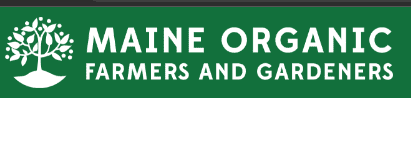
MOFGA-certified organic is the best of both worlds.
Products in this program are certified organic and produced or raised in Maine. Local tells you WHERE your food is produced, and organic tells you HOW it is produced. Maine Organics is a leader in State Food Certification for Organic Food Markets.
Maine Organic Farmers do not use GMO seeds, plants, or animal feeds. This organic certification also means these farmers cannot feed their animals GMO grains. Organic certification assures integrity and transparency through rigorous third-party inspections. A third-party inspector must visit the business and ensure the following organic practices. The federal government must accredit the certifier, such as MOFGA Certification Services LLC in Maine. Certified organic producers must keep careful records of their practices. An inspection happens annually to ensure compliance with federal organic standards. Today’s marketplace features an abundance of labels, such as “all-natural” and “naturally grown.” Certified organic is one of the few that involves an independent, third-party verified process.
Arkansas Organic Certification System

.https://www.arkansaslandcan.org/article/Organic-Certification-in-Arkansas/2876
To receive your certification, you must meet all the requirements of the NOP regulations. These regulations cover what substances you may use in production and processing, conservation measures, recordkeeping requirements, and administrative procedures.
Colorado Organic Certification System
https://www.nrcs.usda.gov/wps/portal/nrcs/detail/co/programs/financial/eqip/?cid=nrcseprd1353134The organic initiative provides assistance to help implement conservation practices for organic producers or those transitioning to organic. The initiative addresses natural resource concerns and helps growers meet requirements related to the National Organic Program (NOP). NRCS assistance includes, but is not limited to:
-
- Developing a conservation plan establishing buffer zones
-
- Planning and installing pollinator habitat
-
- Improving soil quality and organic matter while minimizing erosion
-
- Developing a grazing plan and supportive livestock practices
-
- Improving irrigation efficiency-enhancing cropping rotations, and nutrient management
.
Florida Organic Certification System

Add-On / CFM for livestock and aquaculture feeds, BRC, IFS), Certified Transitional, Certified Hormone/Antibiotic Free, Organic Aquaculture, Aquaponics, and Specific Trade Practices, which allows markets and consumers to choose to support a more just agricultural system. We educate producers, consumers, media, institutions, and governments about the benefits of organic and sustainable agriculture, presenting at tours, conferences, workshops, classes, and other educational opportunities. Topics include but are not limited to organic and sustainable farming practices, local food systems, Farm Bill opportunities, certification options, marketing, social justice, and opportunities and challenges in the organic marketplace.
Georgia Organic Certification System
Hawaii Organic Certification System
https://www.ctahr.hawaii.edu/organic/contacts.html
Welcome everyone to UH-CTAHR’s organic listserv. The goal of this listserv is to provide a forum for exchanging ideas concerning organic agriculture in Hawaii. The topics for discussion are wide open, from policy issues, certification, marketing, and industry updates to how-to technical field production comments or questions. We encourage everyone interested in sustainable agriculture in Hawaii to join. The Food Provider is the sustainable agriculture electronic newsletter of the College of Tropical Agriculture and Human Resources. Published quarterly, it features articles on sustainable and organic production, business, Marketing, CTAHR Research News, video resources, and a Featured Farmer segment. https://hdoa.hawaii.gov/qad/commodities-branch/
Idaho Organic Certification System
Rhode Island Organic Certification System
These federal regulations require that any raw or processed agricultural commodity or product marketed for human or livestock consumption, which is sold, labeled, or represented as “100% organic,” “organic,” or “made with organic” in the US must be produced and handled by the NOP Standards. Any producer or handler (processor) with gross income from sales of organic agricultural products over $5,000.00 annually must be certified by a USDA-accredited certifier.
Operations exempt from certification must comply with the Standards’ production, handling, and record-keeping requirements. More information is available in Organic Certification Resources and Requirements for Uncertified Operations. The USDA NOP regulations can be found on the NOP web page. USDA accredits the Division of Agriculture to certify organic crops and livestock producers. Certification agencies accredited to certify organic handlers can be found on the USDA NOP Accredited Certifiers web page. Operations within the organic handling category process, manufacture, or handle organic products. To determine whether an operation should be certified as a handler, read through the NOP FAQ on becoming a certified operation and State Food Certification.
Illinois Organic Certification System
What we do OCA educates, advocates for organic consumers, engages consumers in marketplace pressure campaigns and works to advance sound food and farming policy through grassroots lobbying. We address crucial issues around State Food Certification, industrial agriculture, genetic engineering, children’s health, corporate accountability, Fair Trade, environmental sustainability, including pesticide use, and other food- and agriculture-related topics.
In summary, OCA education campaigns reach more than two million consumers and organic businesses through our newsletter, social media networks, or mainstream and progressive news outlets. Our U.S. and international policy boards broadly represent the organic, family farm, environmental, and public interest communities.
Connecticut Organic Certification System
A Certified Organic Farm complies with the National Organic Program (NOP) standards and has been inspected and certified by an accredited USDA certifying agent. Products have been grown/raised without synthetic fertilizers, pesticides, growth hormones, irradiation, or genetic engineering. The certification process is rigorous and requires record keeping, payment of an annual fee, and an annual inspection. Note: The National Organic Program allows farmers who sell less than $5,000 of organic produce per year to call their produce “organic” if they follow the national standards.
Baystate Organic Certifiers certifies many organic farms in Connecticut and Massachusetts. CT NOFA supports its members in the certification process with free consulting. CT NOFA now offers to consult for those who need help with their application for State Food Certification for crops, livestock, poultry, eggs, wild crops, mushrooms, sprouts, processed products, and cranberries.
New York Organic Certification System
Diverse Client Base: we certify a wide range of organic operations that include State Food Certification, Farm/Producer, Dairy, Livestock, Wild Crops, Maple, Handler, Broker, Processor, Co-packer, Slaughterhouse, Distributor, Restaurant, and Livestock Auction House.Local and Regional Knowledge: we specialize in the New York State region and surrounding Northeast and Mid-Atlantic regions to better assist in finding allowed inputs, addressing soil and pest issues, and more.
We are invested in our producers and provide easy and timely access. We also seek to reduce inspector travel costs by using local agents. Highly Experienced and Trained Staff: we offer a dedicated staff with extensive years of experience in farming and organic certification. Our staff contains graduates in Environmental Studies/Planning, Animal Science, Ag Business, Biology, Vegetable Crops, and Plant Pathology. They aim to provide great customer service and ensure the highest integrity of the organic standards. Wide Range of Special Services100% Grass Fed Certification ProgramField & Dairy Herd Transition MonitoringExpedited CertificationInternational Trade DocumentsProduct/Material Reviews
Iowa Organic Certification System
Our mission is to educate producers, consumers, and policymakers in the research and extension activities in Organic Agriculture both on-farm and in the Universities. Organic Agriculture involves a production management system based on the ecological principles of nutrient cycling, biotic regulation of pests, and biodiversity. Sunlight-based inputs, such as plant and animal residues replace synthetic fertilizers and pesticides. Premium prices for certified organic products drive the immediate economic benefits of Organic Agriculture.
Long-term benefits to human and environmental health are also derived through these practices. We encourage you to explore this website and share your comments or questions. Similarly, ISU operates an Organic Agriculture Program to provide research information and extension presentations for Iowa citizens through Field Days, learning workshops, and an Annual Iowa Organic Conference every November in Iowa City.
Kansas Organic Certification System
https://agriculture.ks.gov/kda-services/grants-and-cost-share-programs/organic-cost-share-program
The Kansas Department of Agriculture (KDA) is the nation’s first state department of agriculture. The devotion of this agency is to the total support of agriculture in Kansas. The department works for the entire Kansas agriculture sector, including farmers, ranchers, food establishments, and agribusinesses. The department is dedicated to supporting State Food Certification and assistance to make Kansas businesses. Successful and encouraging more farms, ranches, and other agriculture businesses to expand or relocate to Kansas.
New Jersey Organic Certification System
Jersey Fresh
Surprisingly, New Jersey ranks 1st in the nation in the production of eggplant. Often finding use as a meat substitute. Jersey Fresh is Local. It was established in 1984 by the New Jersey Department of Agriculture. The Jersey Fresh logo was designed to inform consumers which fruits and vegetables were grown in the Garden State. The logo guarantees that this piece of produce grows in New Jersey. State Food Certification is key in creating organic food markets.
Pennsylvania Organic Certification System
https://www.agriculture.pa.gov/Business_Industry/pa_preferred/Pages/default.aspx
Definitely, PA Preferred is your resource for finding locally grown and processed agricultural products from the Commonwealth of Pennsylvania. The program has a location in the Pennsylvania Department of Agriculture’s Bureau of Market Development. Significantly, the department launched PA Preferred to identify and promote food and agricultural products grown, produced, and processed in Pennsylvania.
Pennsylvania is home to 7.7 million acres of farmland with an average farm size of 133 acres. The Commonwealth boasts 57,900 farms, 97% owned by families. These farms grow the food that fuels our citizens, and these endeavors fuel the economy. In the long run, buying PA Preferred directly impacts our farmers and our Commonwealth.
The PA Preferred membership base is broader than farmers. Some businesses directly support Pennsylvania agriculture by sourcing ingredients from Pennsylvania farms. PA Preferred processing members are the makers that add value to Pennsylvania agricultural goods. They are preserving the bounty by processing fresh farm items in various ways.
Pennsylvania farmers and the companies that process Pennsylvania-grown ingredients can join PA Preferred to reap the benefits of this statewide brand identity. The mission of PA Preferred is to create opportunities for Pennsylvanians to easily identify and purchase locally grown and processed items, which in turn benefits Pennsylvania’s farmers, agribusinesses, and economy. It is to provide farmers and agribusinesses with a brand identity for the products they grow and produce and State Food Certification. It is to assure consumers that when they purchase products with the PA Preferred logo, they are directly supporting Pennsylvania farmers.
Delaware Organic Certification System
https://agriculture.delaware.gov/
The Department of Agriculture has a dedicated staff that strives effectively and efficiently to accomplish our mission. To sustain and promote the viability of Delaware’s food, fiber, and agricultural industries. Delivering quality services that protect and enhance the general public’s environment, health, and welfare.
Specifically, buying local means buying fresh – buying the best. Buying a local Christmas tree, ice cream, fresh produce, meats and eggs – and much more – directly from Delaware farms means getting the best farm products you can. Delaware has a wealth of markets, farm stores, and other local opportunities to buy locally and support your friends and neighbors. In conclusion, the members of Delaware’s 2,500 farm families work year-round to bring you the best and freshest products.
Washington Organic Certification System
https://agr.wa.gov/departments/organic
WSDA has been serving agriculture and the public for more than 100 years. We support keeping agriculture viable and vital in Washington State through service, regulation, and advocacy. While protecting consumers, public health, and the environment.
The nature of our work falls into three primary roles:
This expertise is recognised as a valuable resource. Services are asked for and paid for by the industry. These will include quality inspections, certifications, laboratory testing, and produce grading.
Washington Organic offers guidance, workshops, and technical assistance to support education for better compliance. Regulatory work includes registration, licensing, permits, inspection, investigation, and compliance support for State Food Certification.
Collectively, they work to raise the profile of Washington’s agricultural products and industry. We can be a voice, catalyst, and facilitator for a viable industry through policy, planning, partnerships, outreach, and promotion.
Oregon Organic Certification System
Oregon Department of Agriculture (ODA) is a USDA-accredited certifying agent for organic crop production and organic handling/processing. Organic is a labeling term for food or other agricultural products that have been produced using cultural, biological, and mechanical practices. Ones that support the cycling of on-farm resources promote ecological balance and conserve biodiversity. To emphasize, this is by the USDA organic regulations.
Organic operations must maintain or enhance soil and water quality while conserving wetlands, woodlands, and wildlife. Synthetic fertilizers, sewage sludge, irradiation, and genetic engineering may not find use on farms seeking certification. Any operation or portion of the operation that produces or handles crops, livestock, livestock products, or other agricultural products. If they are going for sale, labeling, or representation as “100 percent organic,” they must be certified by any USDA-accredited certifying agent.
Utah Organic Certification System
Utah’s Own connects consumers with local farmers, ranchers, food artisans, and other agricultural producers. When you buy from a Utah Producer, you strengthen the economy. Creating local jobs, increasing food security, and helping preserve farms, ranches, small businesses, and farmland. Helping preserve farms over time. This causes a ripple effect to ensure Utah will have farms and ranches for generations to come.
Locally produced food is often higher in quality and freshness. Additionally, reducing the distance food travels reduces associated air pollution and greenhouse gas emissions. Production decentralization also links Local food systems to reduced food safety risks. Knowing your local producers gives you a stronger sense of place, relationships, trust, and pride within your community. Simply, with so many incredible producers in Utah, you’re bound to find something new to love. Above all, each time you buy these products, you choose to support the local Utah food supply.
California Organic Certification System
CCOF advances organic agriculture for a healthy world. Simply, advocating on behalf of the members for organic policies, support the growth of organic through education and grants, and provide organic certification that is personal and accessible. CCOF is a non-profit organization that governs the people who grow and make our food. Founded in California more than 40 years ago. Today, their roots span the breadth of North America, and their presence has international recognition.
This program receives support from an organic family of farmers, ranchers, processors, retailers, consumers, and policymakers. Together, they work to realize a future where organic is the norm. CCOF members can connect with other organic community members through their regional or Processor/Handler chapters.
Apply for organic certification for your farm, products, or ranch. Learn about the CCOF Foundation and support their work growing the organic movement, or share the word about our programs with your community. Activists should look into our advocacy efforts for opportunities to voice their opinions and become change-makers. 2% for OrganicSimply by choosing CCOF for their organic certification, each CCOF-certified operation gives 2 percent of their certification fees back to the CCOF Foundation.
That 2 percent enables the CCOF Foundation to give grants. The funding goes to:
-
- Teachers and students are studying organic.
-
- Provide financial assistance to organic farmers
-
- The development of education programs for prospective organic professionals
-
- And promote consumer education about organic
Finally, the Foundation Members, Partners, and Sponsors help fill in the remaining funding necessary to advance organic agriculture. We hope to join the CCOF with our almonds, walnuts, pistachios, and dates all grown in California.
Utah Organic Certification System
https://ag.utah.gov/organic-certification/
Organic Production is a system that both the state and federal manage. However, this is in response to site-specific conditions in the growing or processing of foods. Organically grown products intend to foster the cycling of resources and promote ecological balance. Furthermore, this program intends to serve producers, processors, and consumers of agricultural products. The goal is to manage a process that will maintain the integrity of food products produced without restricted chemical inputs.
Nevada Organic Certification System
https://nevadagrown.com/farmers/certified-organic/
NevadaGrown is a non-profit Nevada corporation. Their mission is to foster the success of sustainable agriculture. The goal is to encourage healthy eating in Nevada’s communities through education, support, and promotion. NevadaGrown is set to educate communities about using foods grown in Nevada. Encourage healthy eating habits that include seasonal foods from Nevada farms and ranches. Accordingly, this program creates educational opportunities to increase the knowledge and skills of Nevada’s agricultural producers. Create and promote a sustainable local food system. Strengthen the bonds between farmers and consumers.
Nevada Organic Certification System
https://agri.nv.gov/Plant/Organic_Certification/Organic_Certification_Home/The Nevada Department of Agriculture works with various organizations to promote awareness and education regarding Nevada agriculture.
https://agriculture.az.gov/plantsproduce/organic-certification-cost-share-program-occsp
Through a federal grant, the Citrus, Fruit, and Vegetable Division oversees the Organic Certification Cost Share (OCCS) reimbursement program. In addition, the OCCS provides cost-share assistance to producers and handlers who are obtaining organic certification for the first time or renewing their previous certification. Cost-share assistance is provided on a first-come, first-served basis as long as funds are available.
The U.S. Department of Agriculture and Farm Service Agency request applications for the National Organic Certification Cost Share Program and the Organic Certification Cost Share Program. Subsequently, referred to as the OCCSP. The purpose of the OCCSP awards is to defray the costs of receiving and maintaining the State Food Certification.
To be eligible, a producer or handler must have paid fees and expenses related to certification under the National Organic Program. Comparatively, an eligible producer or handler must provide the following information to the appropriate State Agency to apply for reimbursement. Firstly, evidence that the operation is obtaining or has obtained certification under the National Organic Program. Finally, an itemized receipt that identifies allowable costs paid.
Alabama Organic Certification System
The adoption of organic practices in Alabama has grown in recent years. Subsequently, this growth is parallel to an increase in marketing opportunities. Producer-only farmers markets, community-supported agriculture, and online sales platforms are growing. Correspondingly, consumers can now find organic fruits, vegetables, herbs, milk, and meats, all produced in Alabama. Organic farming has grown into a $50 billion industry in the United States. Subsequently, interest in organic production began in the United States in the 1960s and 1970s. During this time period, there were concerns about the effects of agricultural chemicals on human health and the environment.
These concerns led to a desire for farm products raised without synthetic chemicals. Alabama’s oldest organic farms were established in the 1980s. Broader adoption of organic State Food Certification farming practices lagged behind other parts of the country.

